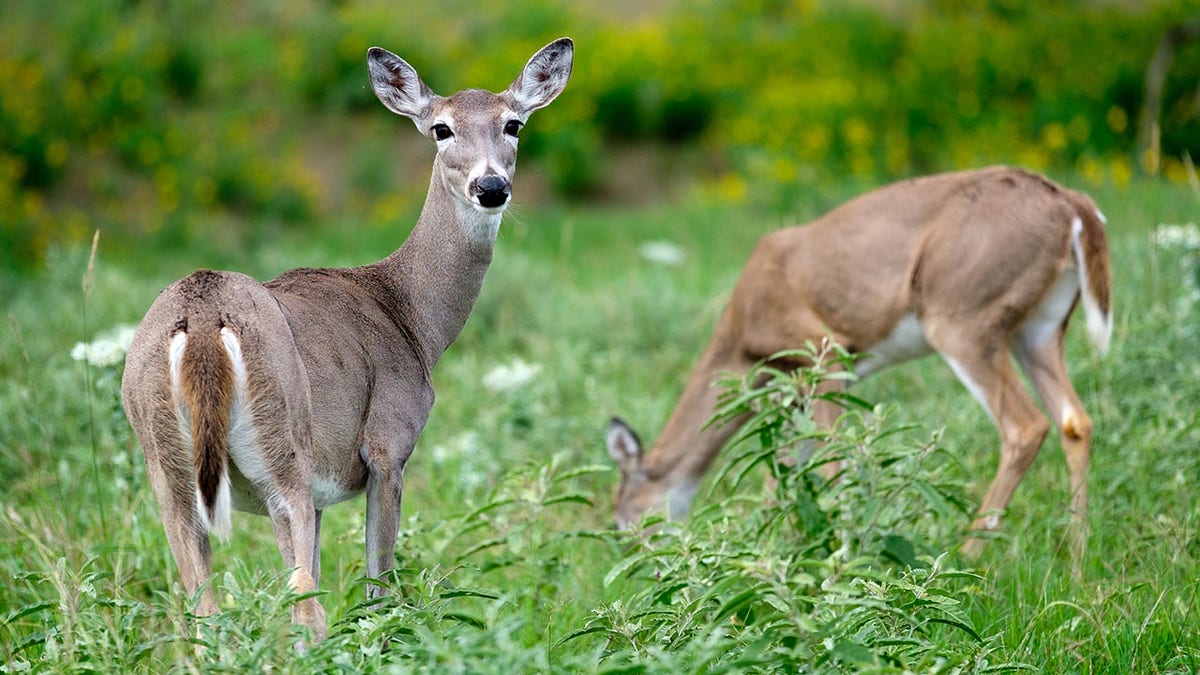Fox News Flash top headlines for September 3
Fox News Flash top headlines are here. Check out what's clicking on Foxnews.com.
A deer farm in Wisconsin is under quarantine after testing positive for chronic wasting disease (CWD), a highly contagious and fatal brain disease.
Scientists with the National Veterinary Services Laboratories in Ames, Iowa, confirmed that samples from a three-year-old doe tested positive for the neurological disease, the Wisconsin Department of Agriculture announced Thursday.
The 150-acre farm, Thundeer Trophy Whitetails in Washburn County, has been placed under quarantine while state and federal agriculture officials conduct an epidemiological investigation. The farm has about 300 deer on its land.
The doe was transferred from Rodenkirch Whitetails and Genetics, a deer farm in Beaver Dam, to the farm on October 4, according to records obtained by the Milwaukee Journal Sentinel. The doe has since been culled from the farm’s herd.

Chronic wasting disease is a prion disease that can cause weight loss, stumbling, listlessness and neurological symptoms in deer, elk and moose, according to the CDC. (Ben Hasty/MediaNews Group/Reading Eagle via Getty Images)
The disease hadn’t been found at either facility at the time of the transfer, although a doe at the Rodenkirch farm tested positive in March.
Chronic wasting disease is a prion disease that can cause weight loss, stumbling, listlessness and neurological symptoms, according to the CDC. It has been spotted in deer, elk, reindeer and moose in areas of North America, Canada, Norway and South Korea. Symptoms can take up to a year to develop.

The highly infectious neurological disease was first detected in Wisconsin in 2002. (iStock)
IS CHRONIC WASTING DISEASE IN DEER DANGEROUS FOR HUMANS?
It was first detected in Wisconsin in 2002, and has forced the depopulation of deer from 22 facilities in the state.
CWD is fatal to infected animals, and so far, no treatments or vaccines have been discovered.
The CDC states that while there have been no reported CWD infections in people, some studies have suggested that it could pose a risk to humans.
The Associated Press contributed to this report.












































